“Ooh, mail art!” Such was my glee in flipping through Fourteen Hills, which is chock full of collages by collaborators Mike Dickau & Jon Held Jr., not to mention the inimitable Winston Smith. This issue of the journal is something of a collage itself, boasting a variety of talented writers from San Francisco and from around the world. Binyavanga Wainaina’s “Hell is in Bed with Mrs. Peprah” takes the reader to a beauty shop in Kenya in the late 70s, where a young girl sits among the hot combs and gossip and listens to the educated, eccentric, and undeniably strong “Auntie” Peprah defend herself against naysayers. Continue reading “Fourteen Hills – Winter/Spring 2005”
NewPages Blog
At the NewPages Blog readers and writers can catch up with their favorite literary and alternative magazines, independent and university presses, creative writing programs, and writing and literary events. Find new books, new issue announcements, contest winners, and so much more!
Decant – 2004
The ten stories of this issue are eclectic in style and, alas, quality: most are engaging, many are well-written, and some could use a bit more work. Descant opens with Paul H. Williams’ “Seeds in the Cellar” about a young man who is somewhat embarrassed by his Cherokee heritage but embraces it in a private moment of mourning for his dead grandfather. Continue reading “Decant – 2004”
Spread the word!
CV2 Contemporary Verse – Winter 2006
“The memory is merely a summary/of the last time I remembered it,” writes Michael Penny in his wonderful poem, “In Memory.” Memory is the theme of the issue, which, among a collection of poems worth remembering, includes interviews with poets Aislinn Hunter, Laurie Block, and Doug Nepinak. I was unfamiliar with many of the poets here, most of whom have published primarily in Canadian journals, and I was happy to be introduced to their strong, original work. Continue reading “CV2 Contemporary Verse – Winter 2006”
Spread the word!
Quick Fiction – Fall 2005
From the moment you pick up Quick Fiction, something tells you it isn’t a standard literary journal. There’s the diminutive size, the quirky cover art, and, most notably, the refreshing and innovative selections of flash fiction. Each piece clocks in at five hundred words or less, the subject matter ranging from a surreal sexual encounter to sea turtles to an overdue library book to an interview with the CIA, featuring styles both lyrical and gritty, with some entries blurring the line between prose and poetry. Continue reading “Quick Fiction – Fall 2005”
Spread the word!
The Bitter Oleander – Spring 2005
Poetry dominates the spring edition of Bitter Oleander, a handsome, glossy journal produced by Bitter Oleander Press. This issue features work by twenty-six poets, with six excellent translations among them. Standouts include David Johnson’s stark and affecting three-part poem “Morning” and Christine Boyka Kluge’s “Swallowing Darkness”: “This is the time of night / when blackest dreams unfold / like bats from secret eaves.” Continue reading “The Bitter Oleander – Spring 2005”
Spread the word!
Lake Effect – Spring 2005
Lake Effect, an annual journal published by Pennsylvania State Erie, features an eclectic selection of poetry, fiction, and creative nonfiction. This issue includes the winners of the Sonnenberg Poetry Award, the Rebman Fiction Award, and the Farrell Nonfiction award, plus brief paragraphs stating the judge’s reasons for selecting the winning manuscripts. Both winners in the prose categories are short pieces, two to three pages, and lush and surreal in tone. R.M. Evans’s “Seahorse,” the nonfiction winner, is a particularly innovative look at the author’s recurring dreams and filled with unique imagery, “I feel my alveoli distend like spinose balloon fish.” Continue reading “Lake Effect – Spring 2005”
Spread the word!
Isotope – Spring/Summer 2005
isotope, a journal of literary nature and science writing, published by Utah State University, boasts an impressive selection of fiction, nonfiction, and poetry, in addition to a striking, full color portfolio of artwork by Richard Gate. This issue includes the winners of the first annual Editors’ Prizes: “Consumption,” a remarkable essay by Sunshine O’Donnell, and a suite of poems by Thomas Joswick that examine the life and art of John James Audubon. My favorite of Joswick’s poems is “Audubon Anticipates Dawn and Blood”: “Before sunrise, from scratching grounds, / where males assemble to strut and boom, / you may hear their rumpled notes, / followed, at times, by rapid / and petulant cackling, / like laughter.” Continue reading “Isotope – Spring/Summer 2005”
Spread the word!
Bardsong – Summer 2005
Too beautiful by half, Bardsong, The Journal for Celebrating the Celtic Spirit, is an unabashed 8.5 x 11-inch publication devoted—in both senses—to the Celtic theme which is expressed by Assistant Editor Kathleen Cunningham Guler as: “[. . .] hiraeth. Untranslatable into English, my own understanding of it has come to mean several ideals: a melancholy longing for an unfulfilled dream of the way things should have been; a need to return to the ancientness of our culture and people; and that beneath the surface of what we consciously see in the present world lies another place, one that is sacred and holds the secrets that are the heart of our heritage.” Continue reading “Bardsong – Summer 2005”
Spread the word!
32 Poems – Spring/Summer 2005
32 Poems could have taken a more minimalist approach to poetry, as its design and layout would suggest, but instead it touches on every fundamental poetic theme—life, sex, change, death—with the varied imagination of the finest journals around. With a book binder’s precision, each poem is designated to one page, never longer. Continue reading “32 Poems – Spring/Summer 2005”
Spread the word!
Alaska Quarterly Review – Fall/Winter 2005
This issue of AQR devotes 80 pages of photo-essay to: “Chechnya: A Decade of War,” by Heidi Bradner. “A Chechen woman holds photographs of her missing sons [. . .].” For those not au courant, Stalin deported the Chechen nation to this desolate area during World War II. Deborah A. Lott’s “Fifteen,” a moving account of her father’s legacy of insanity provides this remarkable insight: “That I made the mistake of aligning myself with the parent who was crazy because I confused his intensity with love.” Continue reading “Alaska Quarterly Review – Fall/Winter 2005”
Spread the word!
New Letters – 2005
From its attractive table-of-contents pages to ads for the Missouri Review, Notre Dame Review, and Shenandoah, New Letters is a class act, including the inside-cover ads for books by and about Peter Viereck as well as for New Letters itself. Robert Stewart’s “Allow Yourself to Say, Yes, An Editor’s Note,” includes this quotation: “‘This playfulness,’ says scholar Richard Rorty, ‘is the product . . . of the power of language to make new and different things possible and important [. . .].'” Continue reading “New Letters – 2005”
Spread the word!
Five Fingers – 2006
Editor Jaime Robles chooses a quotation from Umberto Eco’s The Name of the Rose to help define “uncanny love,” this issues’ theme: “first the soul grows tender, then it sickens…but then it feels the true warmth of divine love and cries out and moans and becomes as stone flung in the forge to melt into lime, and it crackles, licked by the flame…” But there isn’t much moaning here, as it turns out. The work in issue 22 is, for the most part, controlled, tightly wound, sure of itself, and intense. Continue reading “Five Fingers – 2006”
Spread the word!
Books :: 2014 Hudson Prize
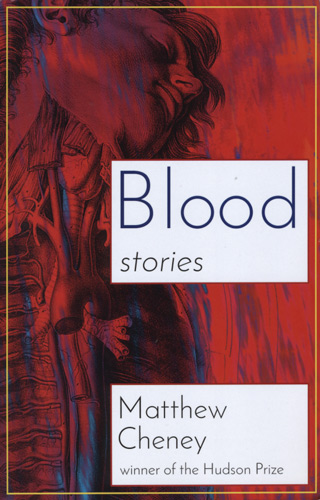 Black Lawrence Press annually awards The Hudson Prize for an unpublished collection of poems or short stories. In 2014, Matthew Cheney brought home the prize with his story collection Blood.
Black Lawrence Press annually awards The Hudson Prize for an unpublished collection of poems or short stories. In 2014, Matthew Cheney brought home the prize with his story collection Blood.
The stories in Blood, published in January 2016, range across various styles, modes, genres, and tones as they explore the worlds of family, love, memory, and loss.
More information about Blood can be found at the Black Lawrence Press website, where readers can also order copies of Cheney’s collection.
Spread the word!
Wallace Stevens Feature
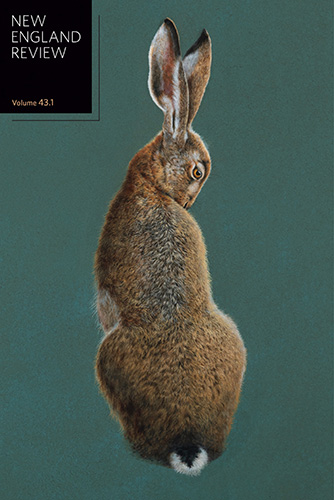 New England Review v37 n1 includes a literary criticism section entitled The Mind at the End of the Palm: Wallace Stevens Thinking. In a series of five essays, “five poet-critics consider Wallace Stevens, with a focus on Stevens as a ‘philosophical’ poet (or not). The first four were presented as a symposium at the AWP Conference in 2014 [by David Baker, Linda Gregerson, Carl Phillips, Stanley Plumly], then gathered by David Baker and edited for print; the final essay, by Carol Frost, came to NER serendipitously, at about the same time. They all look closely at Stevens’s poetry and why it continues to engage us so deeply, more than a hundred years after he published his first poems.” Baker’s contribution can be read on the NER website here.
New England Review v37 n1 includes a literary criticism section entitled The Mind at the End of the Palm: Wallace Stevens Thinking. In a series of five essays, “five poet-critics consider Wallace Stevens, with a focus on Stevens as a ‘philosophical’ poet (or not). The first four were presented as a symposium at the AWP Conference in 2014 [by David Baker, Linda Gregerson, Carl Phillips, Stanley Plumly], then gathered by David Baker and edited for print; the final essay, by Carol Frost, came to NER serendipitously, at about the same time. They all look closely at Stevens’s poetry and why it continues to engage us so deeply, more than a hundred years after he published his first poems.” Baker’s contribution can be read on the NER website here.
Spread the word!
Dimitris Lyacos Feature
 The newest issue of The Bitter Oleander: A Magazine of Contemporary International Poetry & Short Fiction (v22 n1) features an interview with comtemporary Greek writer Dimitris Lyacos as well as a seletion of his poems from his Poena Damni triology, translated by Shorsha Sullivan. An excerpt from his interview with TBO’s editor and a selection from his featured work can be read on The Bitter Oleander’s webite here.
The newest issue of The Bitter Oleander: A Magazine of Contemporary International Poetry & Short Fiction (v22 n1) features an interview with comtemporary Greek writer Dimitris Lyacos as well as a seletion of his poems from his Poena Damni triology, translated by Shorsha Sullivan. An excerpt from his interview with TBO’s editor and a selection from his featured work can be read on The Bitter Oleander’s webite here.
Spread the word!
Spring – October 2002
Always been a fan of E.E. Cummings? Then Spring is the journal for you – nothing for 234 pages but essays about Cummings, poetry influenced by Cummings, and critical examinations of his life and work, with titles like “Hermetism in the Poetry of E.E. Cummings: An Analysis of Three Obscure Poems” and “Squaring the Self: Versions of Transcendentalism in The Enormous Room.” You may see how these kinds of pieces may appeal mainly to scholars of the late poet’s work, but even amateur fans of Cummings can appreciate the playful poems, like this one by Tony Quagliano called “ON BLY ON POETRY”:
Continue reading “Spring – October 2002”
Spread the word!
South Dakota Review – Winter 2003
This slim but vivacious lit mag out of the University of South Dakota is bristling with content: eight short stories, twenty-eight poems, and two essays. Continue reading “South Dakota Review – Winter 2003”
Spread the word!
The Southern Review – Spring 2005
Everything expected of a journal co-founded by Robert Penn Warren and Cleanth Brooks is here in an issue commemorating Warren’s 10oth birthday with his own fine prose (three letters to friends) and six memoirs—including the delightful “Places: A Memoir” by his daughter, poet Rosanna Warren. In a season in which rereading All the King’s Men for dominant themes seems ever more relevant, the brilliant short stories in this issue touch upon war in “Hot Coffee, Summer” by Christine Grillo, in John Lee’s perfect, first-published story “Fires”—”[. . .] a thin blaze over the northern horizon, and we heard that Seoul was about to fall when the pyobom, the leopard, began to appear in the valley,” and in Asako Serizawa’s memorable study of Alzheimer’s Disease “Flight,” astonishingly also a first publication. Continue reading “The Southern Review – Spring 2005”
Spread the word!
PRISM International – Fall 2003
Sometimes clichés are true: this issue of Prism International illustrates the concept that good things do come in small packages. The journal contains poetry which ranges from Bernadette Higgins’ traditional poem, “Short Wave,” describing language, music, and thoughts which tease and cross on the air late at night, to a strong contemporary poem by Matt Robinson, “why we wrap our wrists the same each time,” exploring a hockey player’s quest to “do anything” to beat his “jinx.” Ouyang Yu translates four Chinese poems from the 8th and 9th century, which are beautiful in their simplicity and complexity. Continue reading “PRISM International – Fall 2003”
Spread the word!
The Writer’s Hotel :: 2016
 The Writer’s Hotel, a hybrid writers conference that meets each June at a floating campus between three hotels in Midtown, Manhattan, is not just another writers conference. With an environment much like that of a Creative Writing MFA community, they work with each writer on a target manuscript from the moment of acceptance, for months before the conference, and offer the rare opportunity to polish manuscripts with professional editors before meeting with instructors, writers, agents, industry professionals and editors on site. There is no other writers conference quite like The Writer’s Hotel.
The Writer’s Hotel, a hybrid writers conference that meets each June at a floating campus between three hotels in Midtown, Manhattan, is not just another writers conference. With an environment much like that of a Creative Writing MFA community, they work with each writer on a target manuscript from the moment of acceptance, for months before the conference, and offer the rare opportunity to polish manuscripts with professional editors before meeting with instructors, writers, agents, industry professionals and editors on site. There is no other writers conference quite like The Writer’s Hotel.
Writers tend to arrive at the conference feeling an artistic momentum, and come ready to bring their work to market at the heart of the publishing industry in New York City. Writers will have reading opportunities at a well-known NYC venue, will attend daily events held in inspiring locations around the city, and will participate in several intensive writing workshops, attend lectures, pitch meetings and literary events, and go on historic literary walking tours.
This year’s conference takes place from June 1-7 and faculty includes Meghan Daum, Dolen Perkins-Valdez, Scott Wolven, Shanna McNair, Marie Howe, Tim Seibles, Roger Bonair-Agard, Elyssa East, Wesley McNair, Bill Roorbach, Kevin Larimer, Carey Salerno, Elaine Trevorrow and Bethany Ball. Conference space is limited and the deadline for application is April 22, 2016. Free to apply, writers may upload 20 -25 pages of writing with a brief letter of interest at TWH’s Submittable.
Spread the word!
Lit Mag Covers :: Picks of the Week
 Field: Contemporary Poetry and Poetics Spring 2016 issue features a strking image – no photo credit given – which shows I’m not always drawn to splashy color covers. You can read some sample poems from the issue here.
Field: Contemporary Poetry and Poetics Spring 2016 issue features a strking image – no photo credit given – which shows I’m not always drawn to splashy color covers. You can read some sample poems from the issue here.
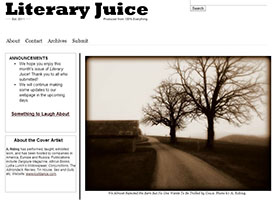 Literary Juice is an online bi-monthly of all genres of prose, poetry, and art. As the editors note: “Lately, we’ve done away with all artistrict boundaries.” This issue’s cover photo is “We Almost Rejected the Barn But No One Wants To Be Trolled by Cows” by A. Riding.
Literary Juice is an online bi-monthly of all genres of prose, poetry, and art. As the editors note: “Lately, we’ve done away with all artistrict boundaries.” This issue’s cover photo is “We Almost Rejected the Barn But No One Wants To Be Trolled by Cows” by A. Riding.
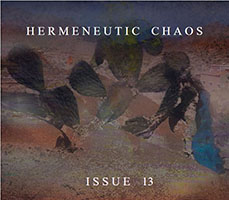 “Sad Cactus” by Netherlands photo artist Stanislaw Lewkowicz is featured on the cover of the online Hermeneutic Chaos March 2016 issue. Lewkowicz’s mezmerizing image is the perfect match for Hermeneutic Chaos, which editors consider a collection of “beautifully crafted narrative mindscapes that move us with their linguistic, emotional expanse and powerful imagery.”
“Sad Cactus” by Netherlands photo artist Stanislaw Lewkowicz is featured on the cover of the online Hermeneutic Chaos March 2016 issue. Lewkowicz’s mezmerizing image is the perfect match for Hermeneutic Chaos, which editors consider a collection of “beautifully crafted narrative mindscapes that move us with their linguistic, emotional expanse and powerful imagery.”
Spread the word!
Books :: 2015 A. Poulin Jr. Poetry Prize
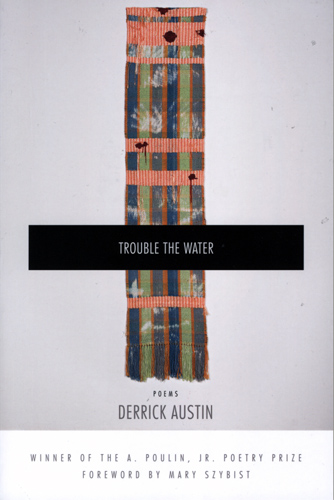 In 2015, Derrick Austin was announced as the winner of the A. Poulin Jr. Poetry Prize through BOA Editions, Ltd. The prize is awarded to honor a poet’s first book, as well as honoring the publisher’s late founder. Austin’s winning title Trouble the Water will be published this month.
In 2015, Derrick Austin was announced as the winner of the A. Poulin Jr. Poetry Prize through BOA Editions, Ltd. The prize is awarded to honor a poet’s first book, as well as honoring the publisher’s late founder. Austin’s winning title Trouble the Water will be published this month.
Rich in religious and artistic imagery, Trouble the Water is an intriguing exploration of race, sexuality, and identity, particularly where selfhood is in flux, interrogating what it means to be, as Austin says, “fully human as a queer, black body” in 21st-century America.
Copies of Trouble the Water are available for preorder at BOA Editions, Ltd.’s website.
Spread the word!
Books :: 2015 Bitter Oleander Press Library of Poetry Award
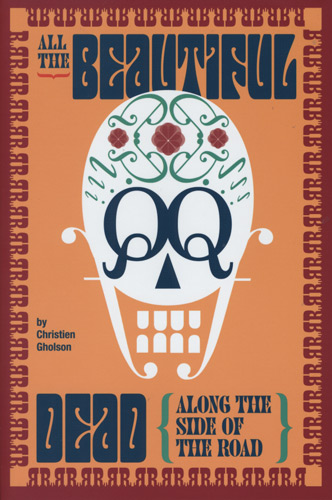 Bitter Oleander Press has announced Christien Gholson as the winner of the 2015 Bitter Oleander Press Library of Poetry Award. Gholson’s winning book All the Beautiful Dead was released last month.
Bitter Oleander Press has announced Christien Gholson as the winner of the 2015 Bitter Oleander Press Library of Poetry Award. Gholson’s winning book All the Beautiful Dead was released last month.
Judge Anthony Seidman calls All the Beautiful Dead “a harrowing, razor-biting collection which addresses the wounded and the outcast, in a landscape of boxcars, poppies, crows, empty fields, the lights of Las Vegas which can’t overpower the open black mouth of the desert night, and the rusted lives and emotional shrapnel ranging from Wales to Colorado, New Mexico to Gaza.”
For more information, check out the Bitter Oleander Press shop.
Spread the word!
Problems
Maya has problems. In fact, Maya has Problems with a capital P. She’s in a boring marriage with Peter, an alcoholic with a conservative family she doesn’t fit into. She’s having an affair with Ogden, one of her former professors who is more than twice her age. She struggles with an eating disorder. Her mother has MS and struggles to care for herself. There are changes happening at her job which may leave her desperate for money. And she juggles all these problems under the haze of her biggest problem: a budding addiction to heroin. Jade Sharma guides us through the haze in her forthcoming, aptly-named novel, Problems. Continue reading “Problems”
Spread the word!
I Want to Be Once
A friend of mine said Google killed the revolutionary. The 99% feel rich. We’re numb and fat. I have access to everything I could ever want. As a matter of fact, my imagination no longer seems as vast as the possibilities created by the internet. However, M.L. Liebler confronts this notion a bit. It is a nudge of awakening. In a generation of Americans with infinite privilege, poverty isn’t even true poverty. He has seen the revolutions in Detroit and the raging in the desert on the other side of the planet. I Want to Be Once has the heart of a sage bringing wisdom to those without experience. While I may be stuck behind my computer, living a life of privilege and low conceit, seeking out only those things pertinent to me, Liebler delivers the news of reality and a slant to go along with it. The revolution is in the letter. Continue reading “I Want to Be Once”
Spread the word!
Strange Theater
Strange Theater brings us a reality where words can deposit you, drop you off, let you move struck by what you know, yet cannot quite believe (this is where we are at?). John Amen is in conversation with us. There is a we, and we have come to a turning point, we of this culture, we of this species, not knowing what we thought we were: Continue reading “Strange Theater”
Spread the word!
Some Versions of the Ice
Reading the surrealist essays in Adam Tipps Weinstein’s Some Versions of the Ice, one is quick to make comparisons. The most obvious is to magical realist writers such as Jorge Luis Borges or Italo Calvino, but there are many other resonances. His essay “The False Pigeon: A History”—a fictional account of a natural history museum—reads like it dropped straight from the pages of George Saunders’s CivilWarLand in Bad Decline, and the deceptively straightforward expositional tone that he employs throughout—which Michael Martone mentions in his wonderful blurb as a “hyper-rational empiricism [running] stoically and joyfully amok”—often echoes Lydia Davis. Continue reading “Some Versions of the Ice”
Spread the word!
Slab
Selah Saterstrom’s Slab opens with a gripe, or a warning, perhaps, that the play won’t start. But then it does, and from page one, the story takes off at a breakneck pace and proceeds with all the force of a hurricane. Continue reading “Slab”
Spread the word!
Like Family
Italian novelist Paolo Giordano’s novella Like Family, in spite of its short length, encapsulates as much of life as his well-known novel The Solitude of Prime Numbers. His previous career as a physicist shows up in both works, while in this one, he is married with a small child employing a housekeeper. As the husband, father, and employer, he is the unnamed narrator in the story. The housekeeper, a central character, is also the child’s caretaker and confidante to the couple. The housekeeper is a middle-aged widow whom the narrator refers to Mrs. A while at the same time being named Babette by the couple (after the Karen Blixen story and film about a woman who prepares a fabulous feast to strict, frugal northerners). We do not know the housekeeper’s real name until the very end, which is important: she is family to the couple but they barely know her. Continue reading “Like Family”
Spread the word!
Truth Poker
“Katherine’s son was about to wrestle a blind boy. . . .” So begins “The Blind Wrestler,” the first short story in Mark Brazaitis’s collection Truth Poker. Surprising, intriguing, declarative sentences like this sink teeth into you and don’t let go, until you’ve reached each story’s satisfying ending. In “The Blind Wrestler,” Katherine has an affair with her son’s high-school-wrestling opponent. She regularly meets the handsome young man in a vacant house, “a den of mild iniquity,” where she confronts not only the loneliness in her marriage to a man eighteen years her senior, but also the way she blindly trudges through motherhood toward old age, without enjoying the journey or considering her destination. Continue reading “Truth Poker”
Spread the word!
Books :: Coffee House Press Meets Emily Books
 Last month, Coffee House Press announced their partnership with Brooklyn-based feminist publishing project, Emily Books (part bookstore/publisher/book club). Together, they’ve created a new imprint for “original books that speak to the aesthetic excellence, experimental boldness, and social concerns of both organizations.”
Last month, Coffee House Press announced their partnership with Brooklyn-based feminist publishing project, Emily Books (part bookstore/publisher/book club). Together, they’ve created a new imprint for “original books that speak to the aesthetic excellence, experimental boldness, and social concerns of both organizations.”
July 2016’s forthcoming Problems by Jade Sharma marks the first book coming from the imprint, with two new Emily Books titles to be published by Coffee House Press annually.
More information about the partnership and the individual presses can be found at the Coffee House Press website blog.
Spread the word!
Books :: 2015 Sawtooth Prize
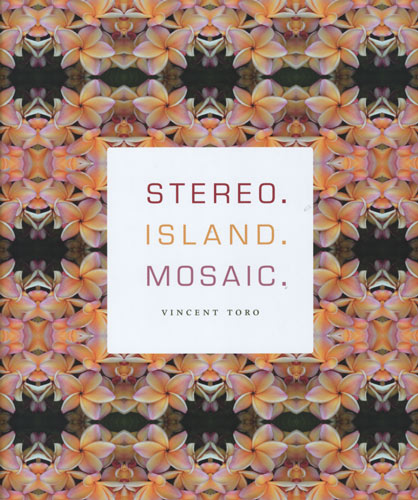 Stereo. Island. Mosaic. by Vincent Toro was published in February. Winner of the 2015 Sawtooth Prize from Ahsahta Press, selected by Ed Roberson, Toro received a $1,500 honorarium and publication.
Stereo. Island. Mosaic. by Vincent Toro was published in February. Winner of the 2015 Sawtooth Prize from Ahsahta Press, selected by Ed Roberson, Toro received a $1,500 honorarium and publication.
Stereo. Island. Mosaic. is, according the author’s statement:
Both a reconstruction of personal history and an examination of Caribbean identity through the postmodern lens of a mosaic woven from Latin American mythology and history, themes of urban migration, Caribbean literature scholar Antonio Benitez-Rojo’s theory of The Repeating Island, and Aime Cesaire’s application of Negritude in his work “Notebook of a Return to the Native Land.”
This is Toro’s first book of poetry, and copies can be found at the Ahsahta Press website, along with the full author’s statement.
Spread the word!
Lit Mag Covers :: Picks of the Week
The Writing Disorder Spring 2016 WAXenVINE Photography
The Beautiful Images of Scott Irvine & Kim Meinelt
WAXENVINE is the collective vision of husband and wife team Scott Irvine and Kim Meinelt. Their work centers around themes of light, shadow, texture and beauty. They are drawn to finding the unusual within the mundane and beauty in unexpected places. Their process often involves blending multiple images together – resulting in a haunting dreamscape that transcends reality and the singular image.
Terrain.org: A Journal of the Built + Natural Environment features some stunning photography on its site that accompanies each written work. Header photo of goshawk in flight by Vladimir Hodac, courtesy Shutterstock.
Spread the word!
Passages North 2015 Contest Winners
 Passages North #37 showcases the winners of their 2015 contests:
Passages North #37 showcases the winners of their 2015 contests:
2015 Thomas Hrushka Memorial Nonfiction Prize
Judge: Steven Church
Winner: Elizabeth Evitts Dickinson, “On Nostalgia”
2015 Elinor Benedict Poetry Prize
Judge: Lynn Emanuel
Winner: Lindsay Means, “Antikythera”
Honorable Mention: K.T. Landon, “The Dead Go Bowling”
Included with the purchase of this issue is a separate book: The Deathmask of El Gaucho by Dan Mancilla, winner of the Little Presque Books Novella Contest. Little Presque was founded and is run by former Passages North managing editor, Timston Johnston.
And an added bonus: two brand new flash nonfiction pieces by Ander Monson from his Letters to a Future Lover series are tucked in the journal, because, as Monsoon said, they were “written and designed to be read unbound and looseleaf, and tucked into books, as the reader desires.”
[Cover art by Evan Prout.]
Spread the word!
MĀNOA A Pacific Journal of International Writing
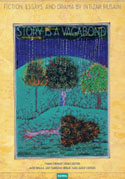 MĀNOA publishes two volumes a year of contemporary writing, often the first time in translation, from throughout Asia, the Pacific, and the Americas. Past volumes have featured new work from such places as the People’s Republic of China, Tibet, Nepal, Taiwan, Japan, Korea, Okinawa, Viet Nam, Indonesia, Malaysia, Papua New Guinea, New Zealand, Australia, Cambodia, French Polynesia, the Pacific Islands, India, Pakistan, and Bangladesh, as well as Canada, Mexico, and South America. The two most recent issues of MĀNOA are Story Is a Vagabond: Fiction, Essays, and Drama by Intizar Husain and The Colors of Dawn: Twentieth Centruy Korean Poetry. Husain, considered one of the greatest writers in Urdu, passed away at the beginning of the year in Lahore, Pakistan. His volume published just early in 2015 provides a fitting tribute to his impact on the literature of his culture.
MĀNOA publishes two volumes a year of contemporary writing, often the first time in translation, from throughout Asia, the Pacific, and the Americas. Past volumes have featured new work from such places as the People’s Republic of China, Tibet, Nepal, Taiwan, Japan, Korea, Okinawa, Viet Nam, Indonesia, Malaysia, Papua New Guinea, New Zealand, Australia, Cambodia, French Polynesia, the Pacific Islands, India, Pakistan, and Bangladesh, as well as Canada, Mexico, and South America. The two most recent issues of MĀNOA are Story Is a Vagabond: Fiction, Essays, and Drama by Intizar Husain and The Colors of Dawn: Twentieth Centruy Korean Poetry. Husain, considered one of the greatest writers in Urdu, passed away at the beginning of the year in Lahore, Pakistan. His volume published just early in 2015 provides a fitting tribute to his impact on the literature of his culture.
Spread the word!
Books :: 2014 Cider Press Review Book Award
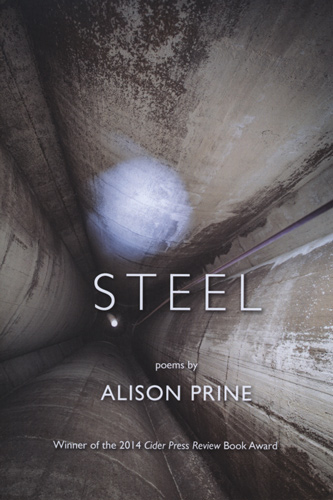 The Cider Press Review Book Award annually offers a $1,500 prize, publication, and more to the author of a book-length poetry collection. In 2014, Alison Prine won with her collection Steel, which was released this past January.
The Cider Press Review Book Award annually offers a $1,500 prize, publication, and more to the author of a book-length poetry collection. In 2014, Alison Prine won with her collection Steel, which was released this past January.
Advanced praise called Steel “a work of memory and reverie. Both precise and transcendent . . .” (Laura Kasischke). Readers can order a copy of Steel and check out an excerpt on the Cider Press Review website.
Spread the word!
Lit Mag Covers :: Picks of the Week
 I’m a sucker for rich, gorgeous, thick layers of color, and this cover image on Weber 32.1 absolutely satisfies. This “Untitled #1” is a mixed media by Ginger Wallace, whose work is also featured on a ten-page spread inside.
I’m a sucker for rich, gorgeous, thick layers of color, and this cover image on Weber 32.1 absolutely satisfies. This “Untitled #1” is a mixed media by Ginger Wallace, whose work is also featured on a ten-page spread inside.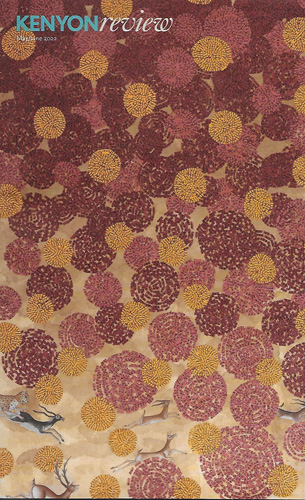 Kenyon Review Editor David H. Lynn tells readers, “Don’t be fooled by the playful beauty of our covers . . . the changes that have come to Kenyon Review over the past year are more than skin deep.” Indeed, while now managing their own electronic versions, writers will be pleased to know the publication has equalized its pay scale between online and print contributors. The cover by artist and illustrator Jon McNaught drew me in to read the rest.
Kenyon Review Editor David H. Lynn tells readers, “Don’t be fooled by the playful beauty of our covers . . . the changes that have come to Kenyon Review over the past year are more than skin deep.” Indeed, while now managing their own electronic versions, writers will be pleased to know the publication has equalized its pay scale between online and print contributors. The cover by artist and illustrator Jon McNaught drew me in to read the rest.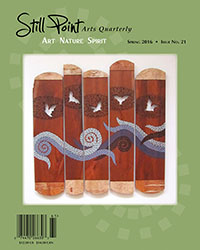 Still Points Arts Quarterly is the beautiful, lavish, journal of arts and literature published by Shanti Arts, which was founded in 2011 by Christine Brooks Cote to celebrate art, nature, and spirit. “Night Flight” by Charlotte Lees is featured on the front cover, while a portfolio of her sculptures is featured inside.
Still Points Arts Quarterly is the beautiful, lavish, journal of arts and literature published by Shanti Arts, which was founded in 2011 by Christine Brooks Cote to celebrate art, nature, and spirit. “Night Flight” by Charlotte Lees is featured on the front cover, while a portfolio of her sculptures is featured inside.
Spread the word!
Books :: 2016 Miller Williams Poetry Prize
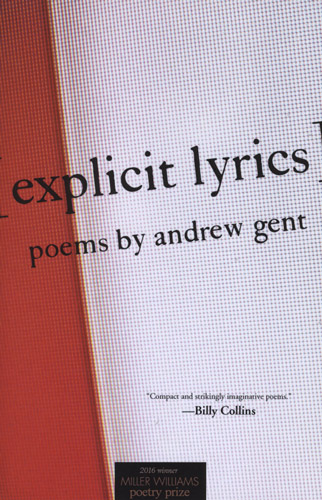 For almost a quarter century, The University of Arkansas Press annually has awarded the $5,000 Miller Williams Poetry Prize. The prize and series, edited by Billy Collins, are named for and honor the cofounder and director of the press, Miller Williams.
For almost a quarter century, The University of Arkansas Press annually has awarded the $5,000 Miller Williams Poetry Prize. The prize and series, edited by Billy Collins, are named for and honor the cofounder and director of the press, Miller Williams.
At the beginning of March, the 2016 winner, [explicit lyrics] by Andrew Gent, was released: “As the title indicates, these poems are lyrics—musings on the small decisions required by existence in the modern world. They contain the grand themes of art—life, love, and mortality—but not where you expect.”
To buy a copy or to listen to a selection from [explicit lyrics], head over to the University of Arkansas Press website.
[quote from publisher’s website]
Spread the word!
Wallace Meets Whitman
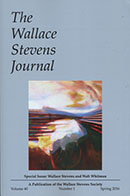 The newest issue of The Wallace Stevens Journal (a publication of the Wallace Stevens Society) is themed: Wallace Stevens and Walt Whitman. Society Vice President Glen Macleod writes in his introductory essay: “When I first proposed an MLA roundtable discussion on Walt Whitman and Wallace Stevens, it seemed like a natural pairing. . . A panel on this topic might prompt some fresh perspectives on a well-established case of literary influence. The topic turned out to be more interesting and more controversial than I anticipated.”
The newest issue of The Wallace Stevens Journal (a publication of the Wallace Stevens Society) is themed: Wallace Stevens and Walt Whitman. Society Vice President Glen Macleod writes in his introductory essay: “When I first proposed an MLA roundtable discussion on Walt Whitman and Wallace Stevens, it seemed like a natural pairing. . . A panel on this topic might prompt some fresh perspectives on a well-established case of literary influence. The topic turned out to be more interesting and more controversial than I anticipated.”
Macleod introduces each of the following essays, excerpts of which can be read on the publication’s Project Muse page:
“A Prefatory Note on Whitman, Stevens, and the Poetics of Americana” by Tyler Hoffman
“Between Surface and Influence: Stevens, Whitman, and the Problem of Mediation” by Patrick Redding
“Whitman and Stevens: No Supreme Fiction” by Matt Miller
“Beach Boys: Stevens, Whitman, and Franco-American Modernism” by Lee M. Jenkins
“Whitman and Stevens: Certain Phenomena of Sound” by Roger Gilbert
And a questionnaire – in which Macleod and Journal Editor Bart Eeckhout ask Tony Sharpe of Lancaster University questions about Whitman and Stevens in the United Kingdom.
Spread the word!
Books :: 2014 Madeleine P. Plonsker Prize
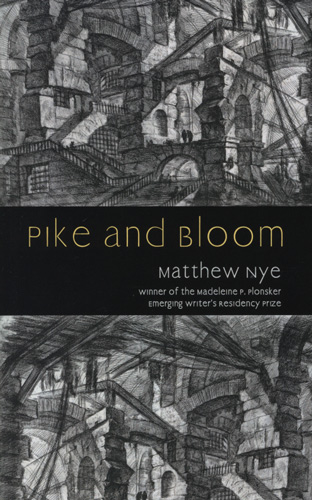 Each year, Lake Forest College awards its Madeleine P. Plonsker Emerging Writer’s Residency Prize to writers under forty with no major book publication. Winners spend three weeks in residence at the campus in Chicago’s northern suburbs. While there, writers spend their time completing a manuscript to be published by &NOW Books, an imprint of Lake Forest College Press.
Each year, Lake Forest College awards its Madeleine P. Plonsker Emerging Writer’s Residency Prize to writers under forty with no major book publication. Winners spend three weeks in residence at the campus in Chicago’s northern suburbs. While there, writers spend their time completing a manuscript to be published by &NOW Books, an imprint of Lake Forest College Press.
Matthew Nye was the 2014 winner and his novel Pike and Bloom was published in February. An American odyssey in miniature, Pike and Bloom maps the trajectories of three characters—Pike, Bloom, and Bloom’s wife Clytie—as they spiral through “the serious blues of Indianapolis,” attempting to construct meaning from the absurd.
Readers can learn more about Pike and Bloom at Northwestern University Press’s website.
Spread the word!
Santa Monica Review – Spring 2005
This issue of Santa Monica Review is an extraordinary collection of memorable short stories and novel excerpts. Editor Andrew Tonkovich has selected outstanding first-person narrations with the theme of morality, as well as religion, appearing in most and uniting them in surprising ways. From the amusing dangers of “Daily Evangelism,” by James D. Houston to Paul Eggers’s moving “A Thinly Veiled Autobiography Regarding My Reasons for Giving Up Chess,” moral concerns rank high. In Roberto Ontiveros’s “The Fight for Space,” the narrator—meshing his mundane job and intellectual super-hero obsessions with Batman’s fictional universe—comes down hard on the comic-book icon: “Batman’s trophy room pisses me off the most; it’s like our hero does not want to find peace.” Continue reading “Santa Monica Review – Spring 2005”
Spread the word!
The Seattle Review – 2005
The Seattle Review’s lovely cover photograph belies the region’s mountainous nature by offering not a hint of near—or distant—mountains while providing the merest glimpse of Lake Washington; and from a locale often thought stubbornly regional, this issue’s surprising highlight is Kathleen Wiegner’s interview of M. Scott Momaday: “Some of my students sometimes say to me, ‘Wouldn’t it be wonderful if you wrote in Kiowa?’ My answer is, well, in the first place, you can’t. There’s no written language.
Spread the word!
Books :: 2015 Iowa Poetry Prize
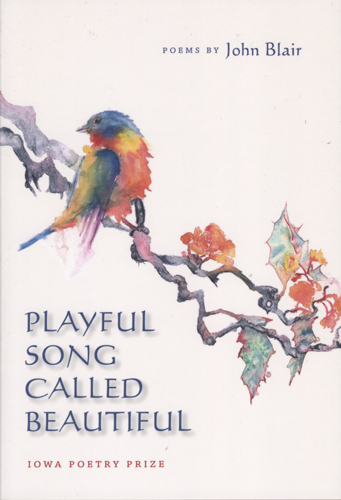 John Blair’s A Playful Song Called Beautiful, winner of the Iowa Poetry Prize in 2015, will be available for purchase next month.
John Blair’s A Playful Song Called Beautiful, winner of the Iowa Poetry Prize in 2015, will be available for purchase next month.
A Playful Song Called Beautiful utilizes poems “that are either formally rhymed and metered or written in syllabically structured three-line stanzas,” poems that “are elegant and earthy, sometimes profane, and sometimes lovingly playful.”
While waiting for the collection’s April 2016 release, check out some samples via the University of Iowa Press website before preordering a copy.
Spread the word!
Lit Mag Covers :: Picks of the Week
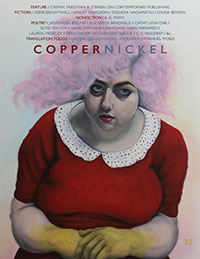 I simply couldn’t look away from Copper Nickel #22, even though I found it somewhat disconcerting. “Samy” by Christine Stormberg is an oil on canvas.
I simply couldn’t look away from Copper Nickel #22, even though I found it somewhat disconcerting. “Samy” by Christine Stormberg is an oil on canvas.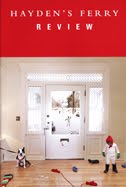 “Borderlands” is the theme of Hayden’s Ferry Review Fall/Winter. Issue 57. “Borderlands are complex spaces filled with treacherous enthymemes, conflicting traditions, and a certain loneliness and search for identity,” writes Editor Chelsea Hickok in her introductory letter. The cover art (which extends to the back cover as well) by Bobby Neel Adams seems a fitting entryway to the borderlands within.
“Borderlands” is the theme of Hayden’s Ferry Review Fall/Winter. Issue 57. “Borderlands are complex spaces filled with treacherous enthymemes, conflicting traditions, and a certain loneliness and search for identity,” writes Editor Chelsea Hickok in her introductory letter. The cover art (which extends to the back cover as well) by Bobby Neel Adams seems a fitting entryway to the borderlands within.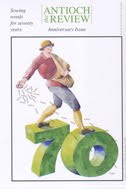 Now that Antioch Review has your attention… “Funny Bird Sex” by John R. Nelson is the opening essay that the issue takes as its subtitle as well as influencing the cover photo by Dennie Eagleson.
Now that Antioch Review has your attention… “Funny Bird Sex” by John R. Nelson is the opening essay that the issue takes as its subtitle as well as influencing the cover photo by Dennie Eagleson.
Spread the word!
World Literature Today International Comics Feature
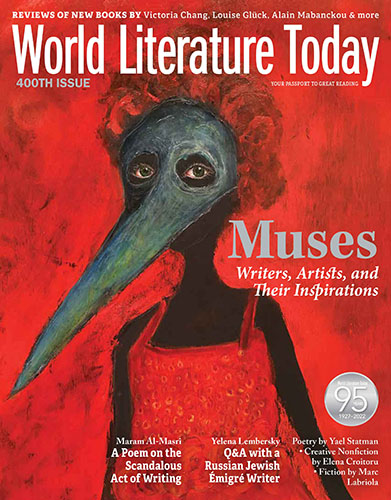 Guest edited by Bill Kartalopoulos, “International Comics” is the theme of the March-April 2016 issue of World Literature Today. Editor for the Best American Comics series, Kartalopoulos also teaches comics history and the graphic novel at Parsons The New School for Design and the School of Visual Arts. Along with his introduction, the magazine features an interview with artist David B. (B. is short for Beauchard), “Baby Boom (excerpts)” comics by Yūichi Yokoyama, and essays “Casting Shadows: Anke Feuchtenberger’s Comics and Graphic Narration” by Elizabeth Nijdam, “Frémok: Comics Out-of-Bounds” by Erwin Dejasse, “International Comics: Five Groundbreaking Publishers,” “Six Comic Books For Further Reading,” and “Ilan Manouach: Defamiliarizing Comics” all by Bill Kartalopoulos.
Guest edited by Bill Kartalopoulos, “International Comics” is the theme of the March-April 2016 issue of World Literature Today. Editor for the Best American Comics series, Kartalopoulos also teaches comics history and the graphic novel at Parsons The New School for Design and the School of Visual Arts. Along with his introduction, the magazine features an interview with artist David B. (B. is short for Beauchard), “Baby Boom (excerpts)” comics by Yūichi Yokoyama, and essays “Casting Shadows: Anke Feuchtenberger’s Comics and Graphic Narration” by Elizabeth Nijdam, “Frémok: Comics Out-of-Bounds” by Erwin Dejasse, “International Comics: Five Groundbreaking Publishers,” “Six Comic Books For Further Reading,” and “Ilan Manouach: Defamiliarizing Comics” all by Bill Kartalopoulos.
Spread the word!
American Life in Poetry :: Thomas R. Smith
American Life in Poetry: Column 571
BY TED KOOSER, U.S. POET LAUREATE
I suppose some of the newspapers which carry this column still employ young people to deliver the news, but carriers are now mostly adults. I had two paper routes when I was a boy and was pleased to find this reminiscence by Thomas R. Smith, a Wisconsin poet. His most recent book is The Glory, published by Red Dragonfly Press.
The Paper Boy
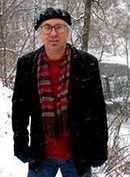 My route lassos the outskirts,
My route lassos the outskirts,
the reclusive, the elderly, the rural—
the poor who clan in their tarpaper
islands, the old ginseng hunter
Albert Harm, who strings the “crow’s
foot” to dry over his wood stove.
Shy eyes of fenced-in horses
follow me down the rutted dirt road.
At dusk, I pedal past white birches,
breathe the smoke of spring chimneys,
my heart working uphill toward someone
hungry for word from the world.
I am Mercury, bearing news, my wings
a single-speed maroon Schwinn bike.
I sear my bright path through the twilight
to the sick, the housebound, the lonely.
Messages delivered, wire basket empty,
I part the blue darkness toward supper,
confident I’ve earned this day’s appetite,
stronger knowing I’ll be needed tomorrow.
We do not accept unsolicited submissions. American Life in Poetry is made possible by The Poetry Foundation (www.poetryfoundation.org), publisher of Poetry magazine. It is also supported by the Department of English at the University of Nebraska-Lincoln. Poem copyright ©2015 by Thomas R. Smith, “The Paper Boy,” from The Glory (Red Dragonfly Press, 2015). Poem reprinted by permission of Thomas R. Smith and the publisher. Introduction copyright © 2015 by The Poetry Foundation. The introduction’s author, Ted Kooser, served as United States Poet Laureate Consultant in Poetry to the Library of Congress from 2004-2006.
Spread the word!
Books :: 2014 Brick Road Poetry Book Contest
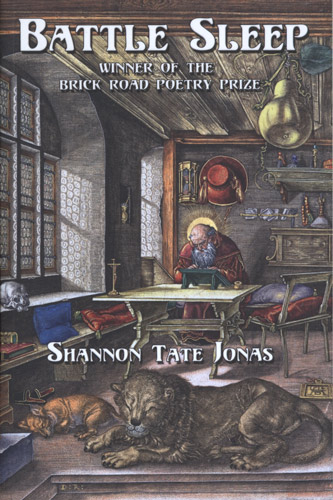 Brick Road Poetry Book Contest is awarded annually, winners receiving a contract with Brick Road Poetry Press, $1,000, and 25 copies of their published book.
Brick Road Poetry Book Contest is awarded annually, winners receiving a contract with Brick Road Poetry Press, $1,000, and 25 copies of their published book.
In 2014, Shannon Tate Jonas took home the prize with his collection Battle Sleep, which was published January 21, 2016. This is Jonas’s first book-length collection of poetry with copies available from the Brick Road Poetry Press website.
Spread the word!
Jimmy Santiago Baca Film & Fundraiser
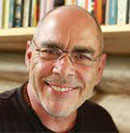 Inspired by the same-named memoir, A Place to Stand is the story of Jimmy Santiago Baca’s transformation from a functionally illiterate convict to an award-winning poet, novelist and screenwriter. Told through extensive interviews with Jimmy, his family, friends and peers, A Place to Stand follows Jimmy’s path from Estancia, New Mexico – where he lived with his indigenous grandparents – through childhood abandonment, adolescent drug dealing and a subsequent 5-year narcotics sentence at Arizona State Prison in Florence, one of the most violent prisons in the country. Jimmy’s extraordinary life is both inspiring and haunting, simultaneously an indictment of our current criminal justice system and a model of the potential for human transformation.
Inspired by the same-named memoir, A Place to Stand is the story of Jimmy Santiago Baca’s transformation from a functionally illiterate convict to an award-winning poet, novelist and screenwriter. Told through extensive interviews with Jimmy, his family, friends and peers, A Place to Stand follows Jimmy’s path from Estancia, New Mexico – where he lived with his indigenous grandparents – through childhood abandonment, adolescent drug dealing and a subsequent 5-year narcotics sentence at Arizona State Prison in Florence, one of the most violent prisons in the country. Jimmy’s extraordinary life is both inspiring and haunting, simultaneously an indictment of our current criminal justice system and a model of the potential for human transformation.
The filmmakers are looking to extend the reach of the movie through an Indiegogo educational campaign to do the following:
- Hold over 50 public screenings across the US (see the website for information on how you can host a screening).
- Release the film digitally and on DVD for consumers.
- Partner with an educational distributor to maximize our reach to schools.
- Secure broadcast distribution (TV presentation) for the film.
- Provide the film, curriculum, and workbook materials to over 100 schools, prisons, and organizations.
- Partner with prison reform organizations to use the film as an activism and awareness-raising tool.
A number of the perks include educational materials to go along with the film as well as copies of the film, works by Baca, and more.
Spread the word!
FIELD – Fall 2015
Just over one third of the fall issue of FIELD: Contemporary Poetry and Poetics is dedicated to a symposium on Russell Edson, a strikingly original poet, playwright, novelist and illustrator who died in 2014. Born in 1935, Edson studied art as a teen, then began publishing poetry in the 1960s. His corpus of work, in addition to numerous books of poetry, includes a book of plays, two novels, and the much-cited 1975 essay, “Portrait of the Writer as a Fat Man: Some Subjective Ideas or Notions on the Care and Feeding of Prose Poems.” In fact, The Poetry Foundation has referred to Edson as the “godfather of the prose poem in America.” In tribute, several contemporary writers each comment on a different Edson poem. Continue reading “FIELD – Fall 2015”
Spread the word!
Able Muse – Winter 2015
The vicissitudes of pain, a stranger who won’t leave, a talking hole in a shoe. These are just a few of the poetry plot lines in the Winter 2015 issue of Able Muse which individualizes itself by publishing work “with a focus on metrical and formal poetry.” Continue reading “Able Muse – Winter 2015”
